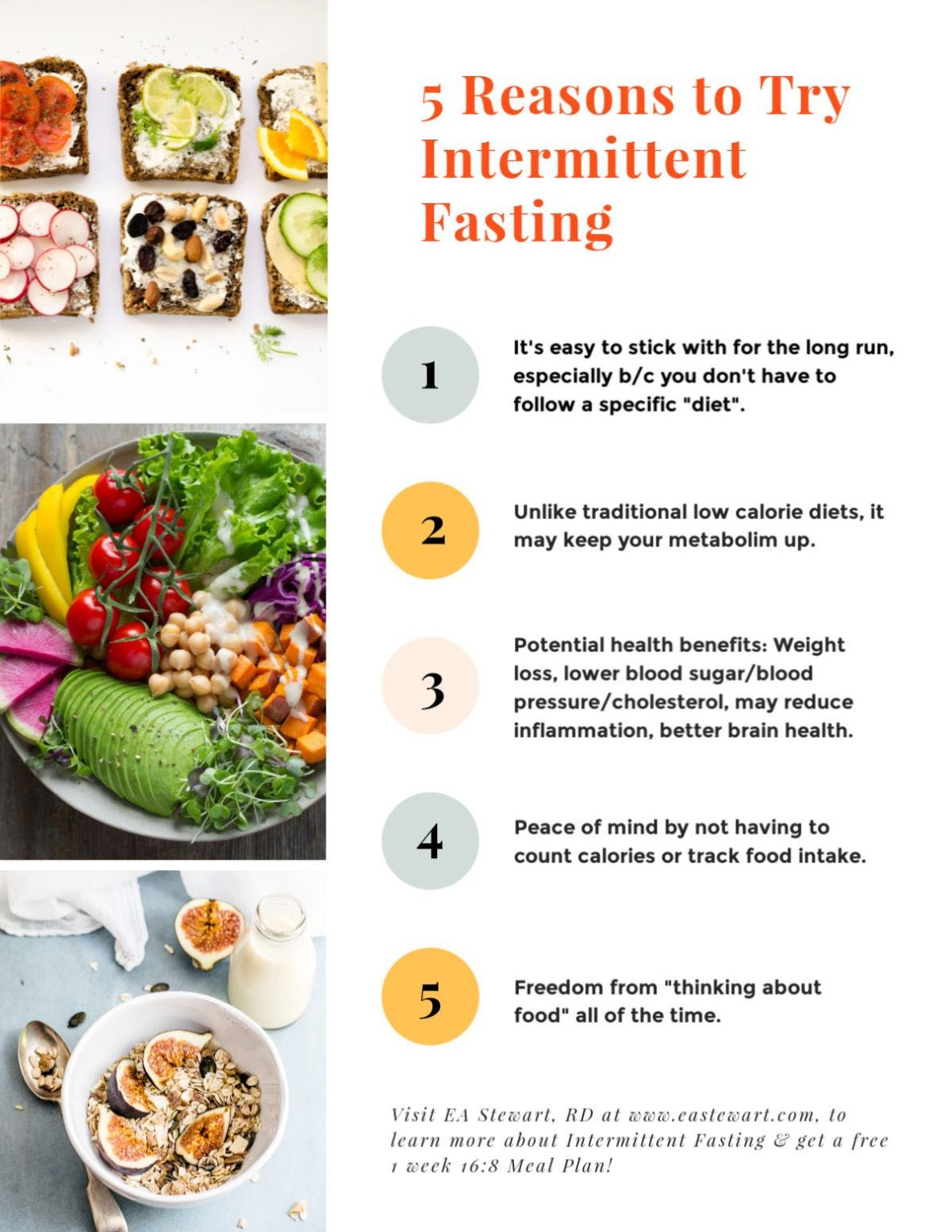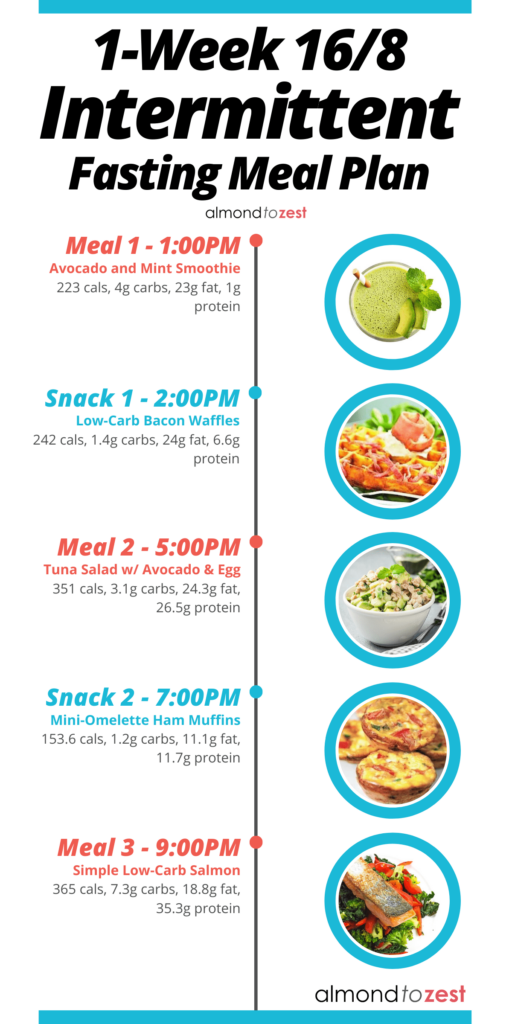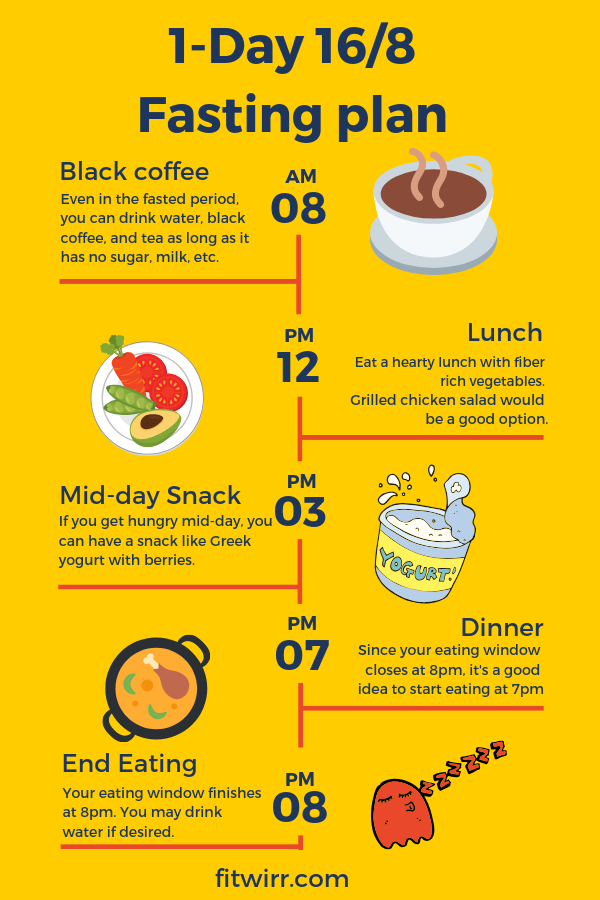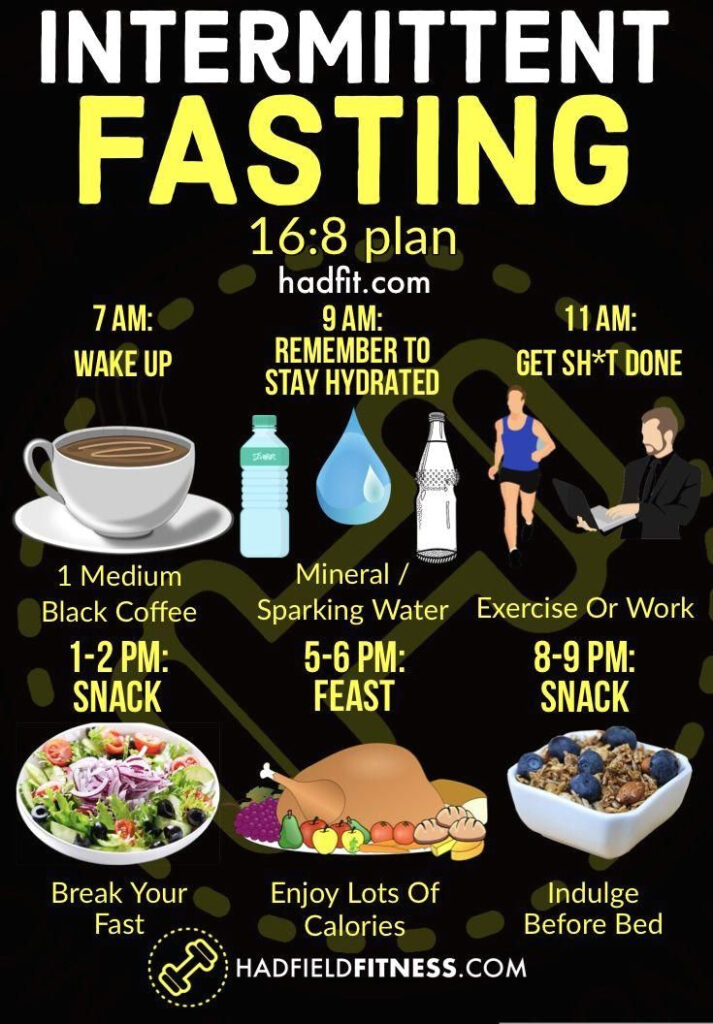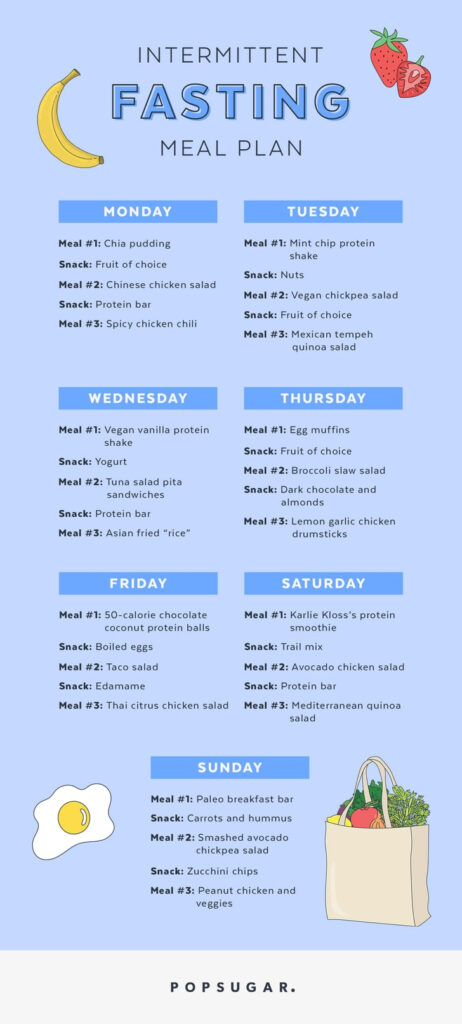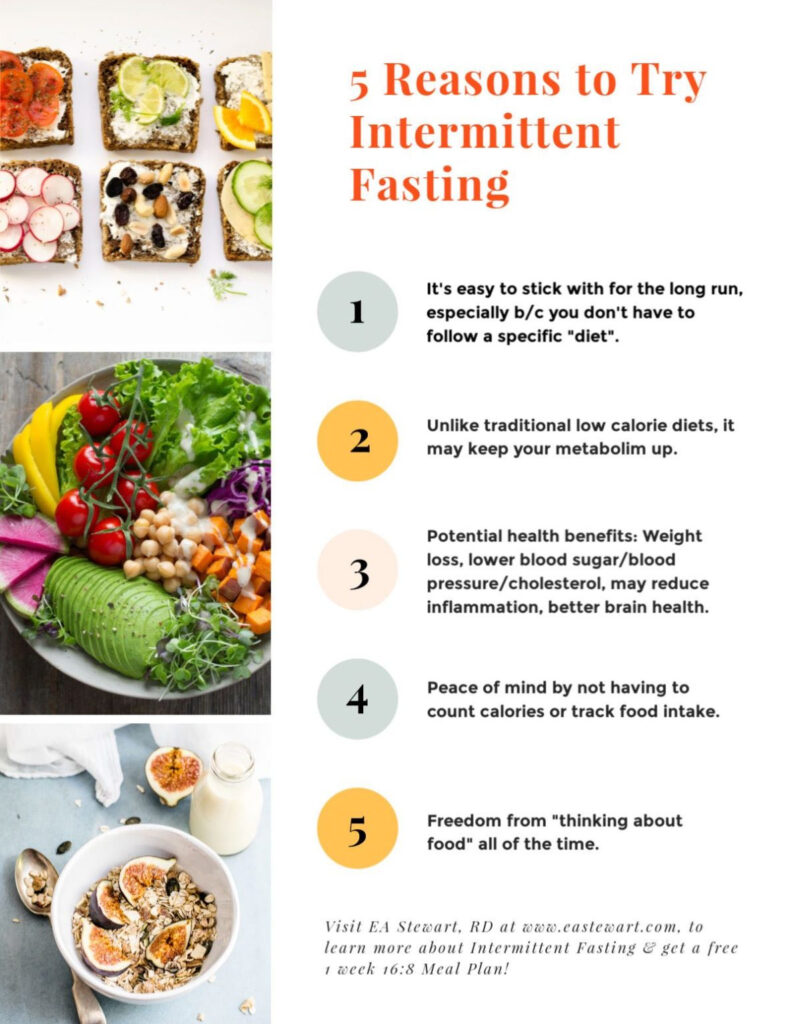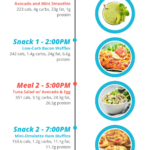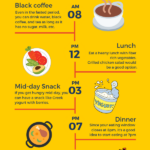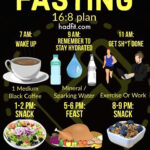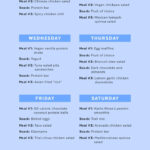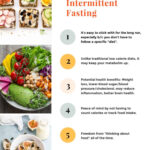Intermittent Fasting And Diet Plan has acquired significant popularity as a nutritional strategy for fat burning, improved metabolic wellness, and possibly raised durability. Unlike conventional diet plans that focus on what to consume, intermittent fasting is all about when you eat. This guide will certainly discover numerous approaches of intermittent fasting, its benefits, just how to begin, what to consume, and ideas for success.
Types of Intermittent Fasting And Diet Plan
The 16/8 Method
The 16/8 approach entails fasting for 16 hours every day and eating all your dishes within an 8-hour window. For instance, you might eat between noon and 8 p.m., then fast till noontime the next day. This technique is prominent as a result of its simpleness and sustainability.
The 5:2 Diet
In the 5:2 diet, you consume normally for 5 days of the week and restrict your calorie consumption to 500-600 calories on the other 2 days. This enables substantial calorie reduction without continuous restriction.
The Eat-Stop-Eat Method
The Eat-Stop-Eat technique involves fasting for 24 hours one or two times a week. For instance, you could fast from dinner one day to supper the following day. This technique can be tough but efficient for fat burning.
Alternate-Day Fasting
As the name recommends, alternate-day fasting includes fasting every other day. On fasting days, some individuals consume no food in any way, while others eat a small amount (around 500 calories).
The Warrior Diet
The Warrior Diet entails eating small amounts of raw fruits and vegetables during the day and having one big meal during the night. This method simulates the eating patterns of old warriors and emphasizes all-natural, unprocessed foods.
Spontaneous Meal Skipping
For those who like a much less structured technique, spontaneous meal avoiding entails avoiding meals when convenient. If you’re not starving or as well busy to eat, you just miss a meal and allow your body to fast.
Just How to Start Intermittent Fasting And Diet Plan
Picking the Right Method
Consider your way of living, schedule, and goals when choosing Intermittent Fasting And Diet Plan approach. Beginning with an approach that seems convenient and change as needed.
Establishing Realistic Goals
Set achievable and measurable goals. Whether it’s dropping weight, enhancing metabolic health and wellness, or raising power degrees, clear objectives will help you stay inspired.
Preparing Your Body
Transition gradually into intermittent fasting. Begin with much shorter fasting periods and progressively enhance the period as your body adapts. Listen to your body and adjust as necessary.
What to Eat During Eating Windows
Balanced Meals
Concentrate on nutrient-dense foods during your consuming home windows. Include an equilibrium of healthy protein, healthy and balanced fats, and fiber-rich carbohydrates. Examples include lean meats, fish, eggs, vegetables, fruits, nuts, seeds, and entire grains.
Foods to Avoid
Restriction refined foods, sugary snacks, and beverages. These can create energy spikes and accidents, making it tougher to stick to your fasting schedule.
Hydration
Remain moisturized by consuming lots of water. Various other appropriate drinks consist of organic teas and black coffee. Hydration is critical for maintaining energy levels and overall health.
Handling Hunger and Cravings
Remaining Busy
Engage in activities to distract yourself from cravings. Physical activities, pastimes, and social communications can keep your mind off food.
Consuming Water
Consuming alcohol water can assist manage appetite. Sometimes, thirst is misinterpreted for hunger, so staying moistened can decrease unnecessary snacking.
Eating High-Fiber Foods
Take in high-fiber foods during your eating home windows to aid you really feel complete longer. Foods like veggies, fruits, vegetables, and whole grains are excellent selections.
Mindful Eating
Practice conscious eating to boost meal contentment. Focus on the flavors, textures, and scents of your food. This can assist stop overindulging and improve your overall connection with food.
Advantages and Potential Side Effects of Intermittent Fasting And Diet Plan
Health Benefits
Intermittent Fasting And Diet Plan offers a number of health and wellness benefits, including weight management, improved insulin level of sensitivity, and boosted brain feature. It can also promote mobile repair procedures and lower swelling.
Prospective Side Effects
While intermittent fasting can be advantageous, it might create preliminary appetite, irritability, and possible nutrient deficiencies. To mitigate these negative effects, ensure your diet is well balanced and pay attention to your body’s needs.
Tips for Intermittent Fasting And Diet Plan Success
Consistency
Uniformity is essential to the success of intermittent fasting. Stay with your chosen plan and make it a part of your daily regimen.
Tracking Progress
Use journals or apps to check your progression. Tracking your fasting times, meals, and physical adjustments can help you stay determined and make necessary adjustments.
Support group
Involve with areas or locate a fasting buddy. Sharing experiences and pointers with others can offer inspiration and accountability.
Typical Myths and Misconceptions
Hunger Mode
Intermittent Fasting And Diet Plan is usually confused with hunger. Unlike malnourishment, intermittent fasting is regulated and planned, with the objective of enhancing wellness and body structure.
Muscle mass Loss
Concerns concerning muscle loss are common, but with proper nutrition and toughness training, intermittent fasting can aid maintain muscle mass while advertising weight loss.
Skipping Breakfast
The myth that morning meal is one of the most important meal of the day is disproved by intermittent fasting. It’s more regarding when you consume rather than adhering to traditional meal times.
Who Should Avoid Intermittent Fasting And Diet Plan?
Medical Conditions
Individuals with certain clinical conditions, such as diabetic issues or eating conditions, need to get in touch with a medical care professional prior to beginning intermittent fasting.
Expecting and Breastfeeding Women
Fasting may not appropriate for pregnant or breastfeeding females, as they need regular nourishment for their health and wellness and the wellness of their baby.
People with High Physical Activity Levels
Athletes or those with high exercise levels ought to very carefully consider their power needs and might require a modified fasting technique.
Final thought
Intermittent fasting offers a flexible and reliable method to improving health and wellness and accomplishing weight reduction goals. By choosing the right approach, concentrating on well balanced meals, and staying consistent, you can successfully integrate intermittent fasting into your way of life. Keep in mind to listen to your body and adjust your plan as needed.
Latest Meal Plan for Intermittent Fasting And Diet Plan
Additional Resources
Publications and Articles
- “The Complete Guide to Fasting” by Dr. Jason Fung
- “Fast. Feast. Repeat.” by Gin Stephens
Apps and Tools
- No (fasting tracker application)
- MyFitnessPal (meal and calorie monitoring app)
Community Support
- On-line forums and social media teams, such as Reddit’s r/intermittentfasting and Facebook teams dedicated to fasting.
